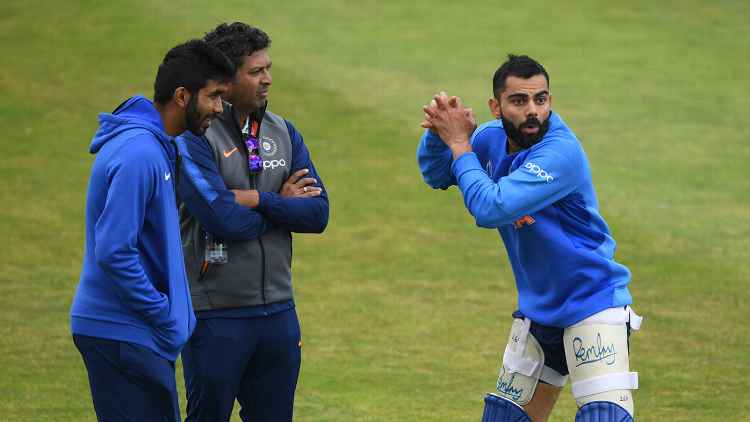
The IPL can actually be good practice for the Australia-India series
by Ian Chappell, Former Australia captainCricket in the Covid-19 era is a far cry from anything experienced in the past, with one notable exception. It's still difficult for visiting teams to prevail.
With venue bubbles, isolation rules, social distancing, and a number of changes to playing conditions, adapting to international competition has been testing for players. It's made life difficult and different even in a team environment but imagine the individual's dilemma in enforced isolation with a tour looming.
The physical preparation is not so difficult, especially for self-starters, but how do you stay in cricket shape?
Perhaps it's productive to recall those idyllic childhood days. Times when you threw a ball against the wall and gleefully produced a myriad of shots, followed by running commentary. When you ran up and delivered a ball at a handkerchief on the ground in the hope of hitting a single stump. And when those activities were completed and there was just enough daylight left, you'd bounce a golf ball on the path in front of the back wall and it would come flying back to fully test your reflexes.
ALSO READ: Western Australia quarantine snub forces India tour to the east
The last exercise was best done when your mother was out of the house. Otherwise you had to deal with "Will you stop throwing the ball against the wall? The bloody noise is driving me mad."
In these more affluent times for cricketers, it's possible many batsmen have invested in a bowling machine. Social distancing is not a problem with roughly 22 yards between batsman and "bowler", but there's the complication of finding someone to feed balls into the machine. And not everybody is as fortunate as former Australia opener Geoff Marsh. He lived on a farm with a specially prepared pitch and a wife willing to feed endless balls into the bowling machine.
However there's the concern that a bowling machine will do more harm than good if it only provides repetitious practice and there's no warning when the ball is about to be released.
One thing is certain: where there's a will, there's a way, and the better players are dedicated to finding a solution.
In the case of the Indian players, and some of the Australians, they will at least have some challenging IPL cricket in the lead-up to the December series. While this may not seem like ideal preparation for a tough Test series in Australia, it's worth recalling the thoughts of former England batsman Ravi Bopara in 2009.
After a stint in the IPL, Bopara was asked on return to England if this was appropriate preparation for a Test match. He responded by saying that "looking to score at every opportunity gets your feet moving positively". He proved his point emphatically by scoring back-to-back centuries against West Indies.
The Indian players could well adopt this attitude for a series in Australia that will impact the Border-Gavaskar trophy, the World Test Championship, and their personal pride. It's unlikely India will have the luxury of lead-up matches against tough opposition. More likely it will be intra-squad games, which can be helpful if selection is judicious and pits good bowlers against equally talented batsmen. The downside is the fast bowlers are often wary of injuring their own players.
Then there's the off chance a player will completely ruin a practice match by performing too well. In the run-up to the inaugural World Cup and then an Ashes series, the 1975 Australian touring party played an intra-squad game at the Bank of England grounds in London. I became so exasperated when Doug Walters' medium-pacers mowed down our top order that I sent opener Bruce Laird back to the crease for a second try. True to type, Walters, from the top of his mark quipped: "Hey batsman, haven't I seen you somewhere before?"
Despite Walters' match-ruining figures of 5 for 32, Australia went on to reach the World Cup final and achieve a Test series win. Similar success for India following a convoluted preparation would reverse the Covid-19 trend of home-team success.